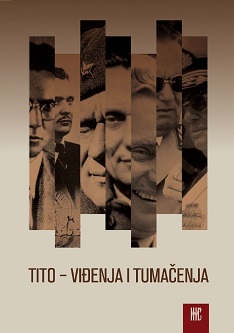Između javnog i privatnog: Tito o svakodnevici žena u socijalizmu
Between the Public and Private: Tito about a Woman's Everyday Life in Socialism
Author(s): Vera Gudac-Dodić
Subject(s): Gender Studies, Civil Society, Political history, Social history, Social development, Sociology of Politics
Published by: Institut za noviju istoriju Srbije
Keywords: Tito; woman; socialism; identity; social roles; state;
Summary/Abstract: Tendencies of a party state to influence the formation of a socially desirable role of a woman in postwar Yugoslavia are, among other things, reflected in scientific papers, public presentations and speeches made by Josip Broz Tito. The forming of a new face of a woman in socialism corresponding the Communist party ideals and the spirit of the time, new rights and duties opposing patriarchy and the practice of gender inequality, created the attitude of Tito towards women. Women were given different roles than the ones they had during the former regime, the role of labour heroine, equal and omnipresent Josip Broz Tito's speeches and their media echo were a request and an invitation to mobilize women for different activities and tasks imposed on them by the socialist state as well as the society. Contradiction between the former and future paradigmatic image of a woman after the war time and in the decades that followed was even more complicated by the ambivalence of the socially desirable and expected roles of a woman, that is, the ambivalence inside the mere ideal of a socialist woman. The set of questions and problems concerning maternity was attached a huge importance. The idea of children upbringing controlled by the socialist state and in line with its ideals was omnipresent The state was taking over the care of younger generations, protected maternity, tended to make up for family influence, and rear children in line with the promoted values. Socialist authorities did not view maternity as an exclusively private, woman matter, but in many ways, it directly got involved in its privacy, attempting to gain control and patronizing influence over children and the young. An everyday life of women, wives and mothers who were employed brought to the fore the conflicted roles and the problem of their harmonization. Woman overload became the leit-motif of her life. The reduction of free time beyond the limits, fatigue, despite the acquired rights and areas of the achieved freedom, once again indicated the unequal treatment of men and women. The practice sometimes blocked the proclaimed policy of social gender equality. The main issue of a woman’s everyday life in socialism for Josip Broz Tito was making their roles easier for family women, especially mothers, to enable them to work and be part of social life. Tito's messages promoted the state strategy for a woman’s social integration with the help of public services.
Book: Tito - Viđenja i tumačenja
- Page Range: 360-371
- Page Count: 12
- Publication Year: 2011
- Language: Serbian
- Content File-PDF

